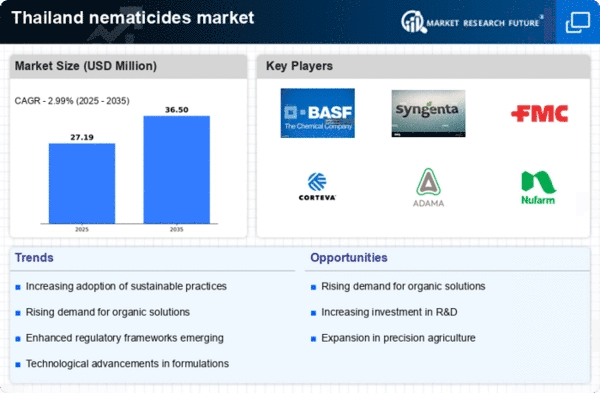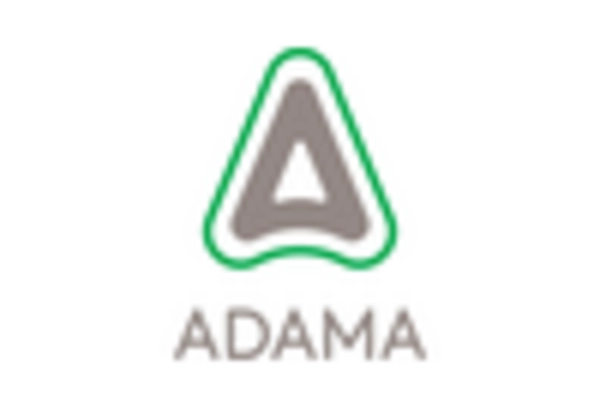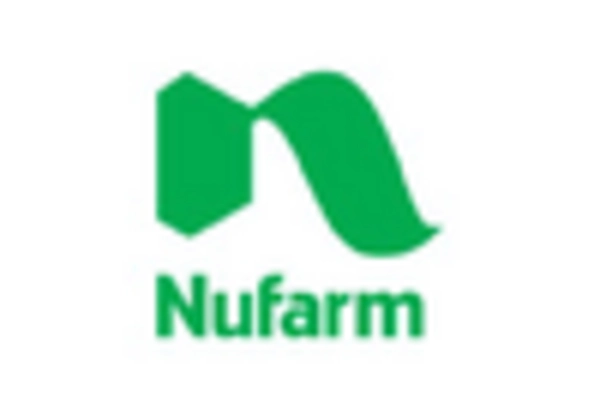Growing Awareness of Soil Health
There is a rising awareness among Thai farmers regarding the importance of soil health, which is significantly influencing the nematicides market. Healthy soil is essential for sustainable crop production, and nematodes can severely compromise soil quality. As farmers become more educated about the relationship between soil health and crop productivity, the demand for nematicides that promote soil vitality is likely to increase. This trend suggests a potential market growth of around 8% annually as farmers seek products that not only control nematodes but also enhance soil health. The nematicides market is responding by developing formulations that support both pest control and soil improvement.
Government Initiatives and Support
The Thai government has been actively promoting initiatives aimed at enhancing agricultural productivity, which includes support for the nematicides market. Programs that provide financial assistance and subsidies for purchasing nematicides are being implemented to encourage farmers to adopt effective pest management strategies. This governmental backing is crucial, as it not only alleviates the financial burden on farmers but also fosters a more robust market environment. The estimated investment in agricultural support programs is projected to reach $200 million by 2026, which is likely to stimulate growth in the nematicides market.
Increased Crop Losses Due to Nematodes
The prevalence of nematode infestations in Thailand's agricultural sector is a significant driver for the nematicides market. Reports indicate that nematodes can cause crop losses of up to 30% in certain crops, particularly in rice and vegetables. This alarming statistic has prompted farmers to seek effective nematicide solutions to protect their yields. The urgency to mitigate these losses is likely to propel the market forward, with an estimated growth rate of 10% projected over the next five years. Consequently, the nematicides market is focusing on developing targeted solutions to address the specific challenges posed by nematodes.
Rising Demand for Sustainable Agriculture
The increasing emphasis on sustainable agricultural practices in Thailand is driving the growth of the nematicides market. Farmers are increasingly seeking eco-friendly solutions to combat nematode infestations while minimizing environmental impact. This shift is reflected in the rising adoption of organic farming methods, which has seen a growth rate of approximately 15% annually. As a result, the demand for biopesticides and other sustainable nematicides is expected to rise, potentially leading to a market expansion valued at over $50 million by 2027. The nematicides market is thus adapting to these trends by developing innovative products that align with sustainable practices.
Technological Advancements in Pest Control
Technological innovations are playing a pivotal role in shaping the nematicides market in Thailand. The integration of precision agriculture technologies, such as soil sensors and data analytics, allows farmers to apply nematicides more efficiently and effectively. This trend is expected to enhance crop yields and reduce the overall usage of chemical inputs. As a result, the market is anticipated to grow at a compound annual growth rate (CAGR) of 12% over the next few years. The nematicides market is thus increasingly focusing on research and development to leverage these advancements for better pest management solutions.
















